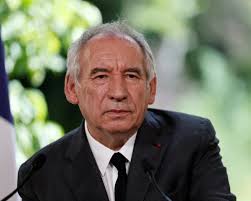What began as a national reckoning over violence in schools has now opened a much deeper conversation in France — one that questions not just how to protect children, but who should hold power over the nation’s diverse education system.
A new French parliamentary report released on July 2 has revealed troubling cases of abuse across hundreds of schools.
But beyond the immediate concern for student safety, the findings have ignited fresh controversy over the role of faith-based institutions — particularly Catholic ones — in French society.
A National Inquiry Uncovers Widespread Failures
Over the past five months, French lawmakers dug into hundreds of cases of violence and abuse across both public and private schools.
What they uncovered was deeply unsettling: systemic silence, ignored warning signs, and institutions failing to act.
The most damning findings focused on Catholic schools that operate under a state contract — institutions that technically follow national education standards but retain their own ethos.
The report cited over 270 affected schools and at least 80 victim collectives, painting a picture of nationwide neglect.
The Catalyst: A Shocking Case in the Pyrénées
Much of the momentum behind the inquiry stemmed from a scandal involving the Notre-Dame de Bétharram boarding school in southwestern France.
Stretching from 1957 to 2004, this case involved dozens of reports of severe physical and sexual abuse by priests, teachers, and staff.
Victims described the acts as “sadistic” and “unprecedented in cruelty.”
The case became symbolic — not only of institutional failure but of the state’s inability to safeguard vulnerable minors.
Prime Minister François Bayrou, whose own children once attended the school, was even summoned to testify.
A Report That Doesn’t Hold Back
Led by Violette Spillebout of President Macron’s Renaissance party and Paul Vannier of the far-left La France Insoumise, the commission didn’t shy away from naming problems.
The Bétharram case was held up as the ultimate example of “structural dysfunction.”
But while the report covered violence in all schools, critics noticed that Catholic institutions received the lion’s share of scrutiny — raising suspicions of political motivations, especially given Vannier’s prior criticism of Church-affiliated schools.
Damning Stats and a System in Denial
Perhaps even more disturbing than the stories themselves were the numbers — or rather, the gaps in them.
A national survey estimated around 7,000 cases of sexual abuse in just one year.
Yet official records from 2023–2024 documented only 280.
Teachers accused of misconduct were often simply moved elsewhere.
The commission also highlighted the lack of a centralized national database to track abuse, as well as poor coordination among institutions when it came to sharing crucial information.
Sweeping Reforms Proposed — And Contested
To fix what it calls a “broken system,” the report suggests several major changes.
Among them:
-
Extending the statute of limitations for abuse cases
-
Creating an independent reporting body called Signal Éduc
-
Protecting whistleblowers
-
Compensating victims via a national fund
The commission also recommends annual inspections for primary boarding schools and at least one inspection every three years for middle and high schools.
One of the most controversial suggestions? Allowing professional secrecy — even in religious confession — to be lifted in abuse cases involving children under 15.
Catholic Schools Push Back
The Catholic Education Secretariat (SGEC), which oversees over 7,000 schools in France, came under direct fire in the report — especially from co-rapporteur Paul Vannier, who questioned its legitimacy and oversight practices.
Philippe Delorme, SGEC’s Secretary General, responded with a mix of agreement and concern.
While he welcomed efforts to spotlight abuse and encourage vigilance, he warned against what he saw as an erosion of Catholic schools’ unique character and mission.
Delorme defended the SGEC’s ongoing efforts, including a May 2025 campaign called “Stop Violences” and background checks for 80,000 non-teaching staff.
“We don’t operate like public schools — and that’s by design,” he told lawmakers.
A Larger Political Struggle Behind the Report?
Beyond the abuse revelations, some critics argue that the report doubles as a political tool.
Education journalist Caroline Beyer wrote in Le Figaro that the investigation felt more like a “political sequence” targeting Catholic institutions than a neutral probe.
That suspicion is bolstered by Vannier’s previous work — including a 2024 report criticizing state funding for Catholic schools.
Former Higher Education Minister Patrick Hetzel went even further, accusing Vannier and LFI of trying to reignite “the school war,” a reference to long-standing tensions between secular and religious education in France.
Calls for Balance Amid Necessary Reform
While no one disputes the need for reform, the focus on Catholic institutions has left some questioning whether the report risks misrepresenting where the real problems lie.
Abuse happens across all types of schools, critics argue — so why spotlight only one sector?
Violette Spillebout has maintained that their work was rooted in victims’ testimonies, not ideology.
“No child should be left unprotected, no matter what type of school they attend,” she said.
Still, public opinion remains divided, and the shadow of political bias threatens to blur the urgency of the issue.
